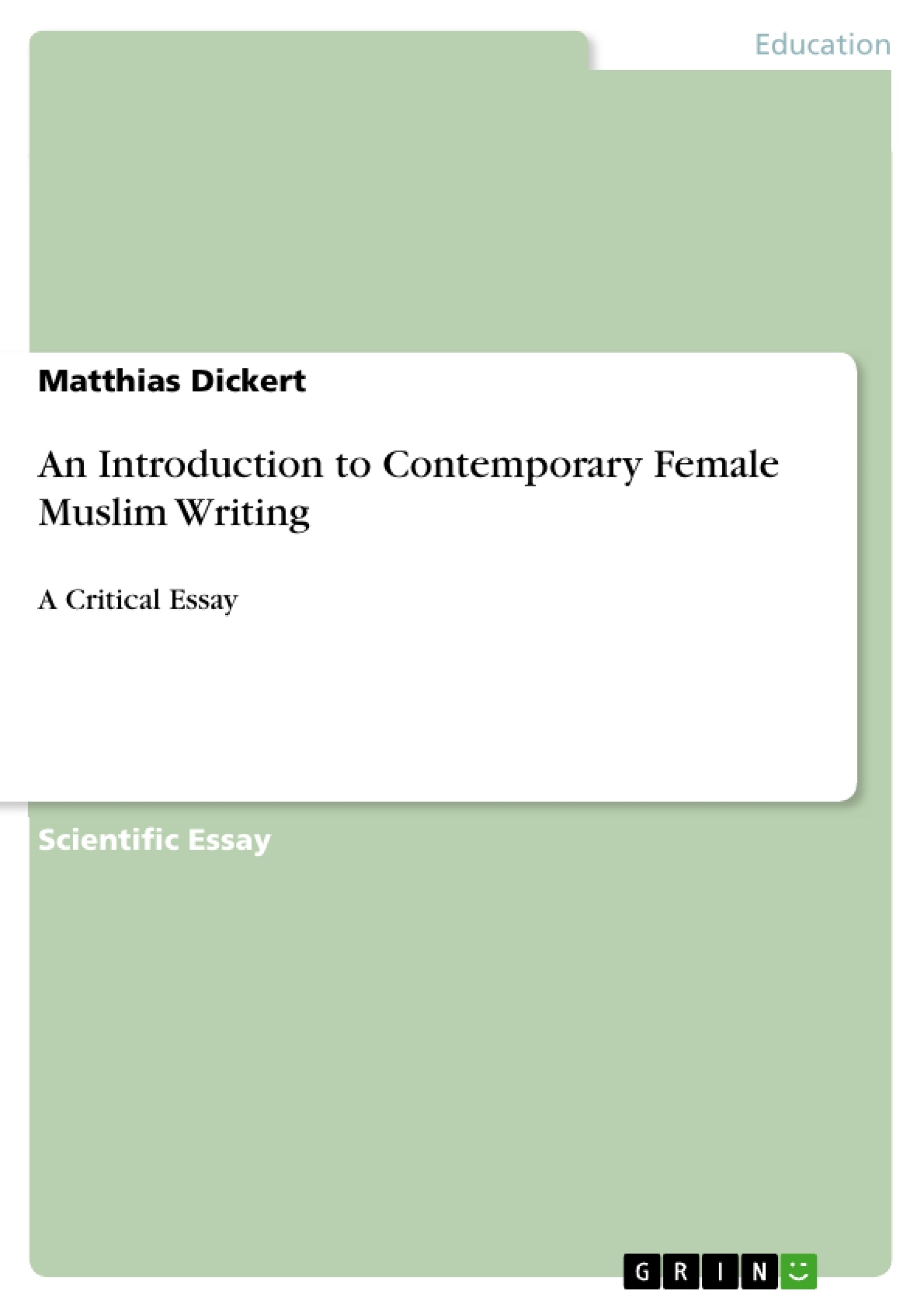This essay is meant to give some sort of introduction into topics female Muslim writers are responsible for at the moment. It offers some sort of overview on important female Muslim novelists whose works significantly feature female perspectives of women's themes which range from matters of gender roles, patriarchal structures, life under Islam and Sharia law, emancipation or one of the key elements, hybrid existence.
The essay starts with some general notes before it moves on with a closer analysis of the hybrid. It ends with some sort of outlook where female Muslim writing might head to.
The bibliography at the end lists up recommended literature by the author of this text.
Inhaltsverzeichnis (Table of Contents)
- Abstract
- 1. Muslim Women Writers
- 2. Hybrid Description and Hybrid Identity under the Focus of Islam and Islamic Fundamentalism
- 3. Outlook
- 4. Literature
Zielsetzung und Themenschwerpunkte (Objectives and Key Themes)
This essay aims to provide an introduction to the themes explored by contemporary female Muslim writers. It offers an overview of significant female Muslim novelists whose works focus on female perspectives within the context of Islam. The essay explores issues such as gender roles, patriarchal structures, life under Sharia law, emancipation, and the concept of hybrid existence.
- Female Muslim perspectives on gender roles, patriarchal structures, and life under Islam.
- The concept of hybrid identity in the context of Islam and Islamic fundamentalism.
- The role of Muslim women writers in shaping contemporary literary narratives.
- The intersection of Muslim identity with themes of migration, assimilation, and diaspora.
- The power and potential of female Muslim writing in contemporary society.
Zusammenfassung der Kapitel (Chapter Summaries)
The first chapter, "Muslim Women Writers," explores the complexities of defining Muslim women's writing, situating it within the broader context of "Muslim literature." It highlights the diverse range of topics and perspectives covered by these writers, and emphasizes the importance of considering their shared Muslim identity. The chapter also explores the impact of "Postcolonial Studies" on the portrayal of female Muslim characters, particularly in relation to themes of migration, immigration, and assimilation.
The second chapter, "Hybrid Description and Hybrid Identity under the Focus of Islam and Islamic Fundamentalism," delves into the concept of hybrid identity within the framework of Islam and Islamic fundamentalism. This chapter analyzes how female Muslim writers navigate the complexities of their hybrid existence, and the challenges they face in reconciling their religious and cultural identities with contemporary societal norms.
Schlüsselwörter (Keywords)
The main keywords and focus topics of this text include: female Muslim writers, hybrid identity, Islamic fundamentalism, gender roles, patriarchal structures, migration, assimilation, diaspora, postcolonial studies, and contemporary literary narratives. This essay explores the intersection of these themes and concepts, examining how they shape the experiences and perspectives of female Muslim writers and their contributions to contemporary literature.
Frequently Asked Questions
What are the main themes of contemporary female Muslim writing?
Key themes include gender roles, patriarchal structures, life under Sharia law, emancipation, and the concept of hybrid identity.
What is meant by "hybrid identity" in this context?
It refers to the experience of individuals navigating multiple cultural and religious identities, often balancing Islamic traditions with Western societal norms.
How do postcolonial studies influence this literature?
Postcolonial studies provide a framework for analyzing themes of migration, diaspora, and the portrayal of Muslim characters in a globalized world.
Why is the female perspective important in Muslim literature?
Female writers offer unique insights into the domestic and social challenges faced by women within Islamic societies and the diaspora.
What does the essay say about the future of this genre?
The essay provides an outlook on where female Muslim writing might head, emphasizing its growing power in shaping contemporary literary narratives.
- Citar trabajo
- Dr. Matthias Dickert (Autor), 2016, An Introduction to Contemporary Female Muslim Writing, Múnich, GRIN Verlag, https://www.grin.com/document/315278



